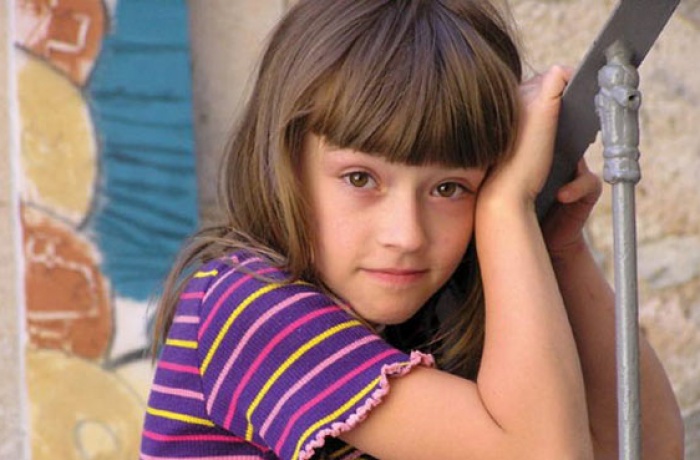
Miroslav Janek investigates life in a children's home through games. He invites the kids to become his filmmaking partners: he teaches them how to operate a film camera, and encourages them to film the environment in which they live. The director introduces the children to various filmmaking crafts, and thus they are not limited to merely capturing reality. Together they create animation, shoot skits they have created themselves, and experiment with film materials - all the while revealing many things about their lives. In the kids' hands, the camera is a toy, but one which breaks down the walls separating two worlds. It is a tool that enables them to confide their secrets, to cope with powerlessness and unexpected sorrow. “Hi mom, hi Kuba, I'm in the woods and my phone number is 021905. On the way, I saw forest men, homeless people, nymphs, drunks, and a witch who gave us some snakes. We ate the snakes. Then I flew home to where the beginning is. Big animals were at the table worrying about something. Suddenly, I looked up and the social lady was standing at the door, and Uhu flew to the stars, and there was creepy thunder. Then I dissolved completely, like sugar in water. It was pretty impressive. That's what I remember. I won't even mention the car crash.”
Miroslav Janek was born in Nachod in 1954. From a young age he devoted himself to amateur film and he shot several films as a self-taught filmmaker. In 1979, he emigrated to Germany and later went to the USA, where he primarily made a name for himself as an editor. His most important work was probably his collaboration with director Godfrey Reggio on the internationally acclaimed compilation films Powaqqatsi (1988), Anima Mundi (1992) and Naqoyqatsi (2002). Since returning to the Czech Republic in 1993, he has devoted himself as a cameraman and director to his own documentaries. His film about blind children with a camera The Unseen (Nespatrene – 1996) has won the most accolades, both at home and abroad. In recent times, his documentary films Kha-chee-pae (Chacipe) and Vierka or the Mystery of Family B’s Disappearance (both made in 2005) have won prizes at several festivals.